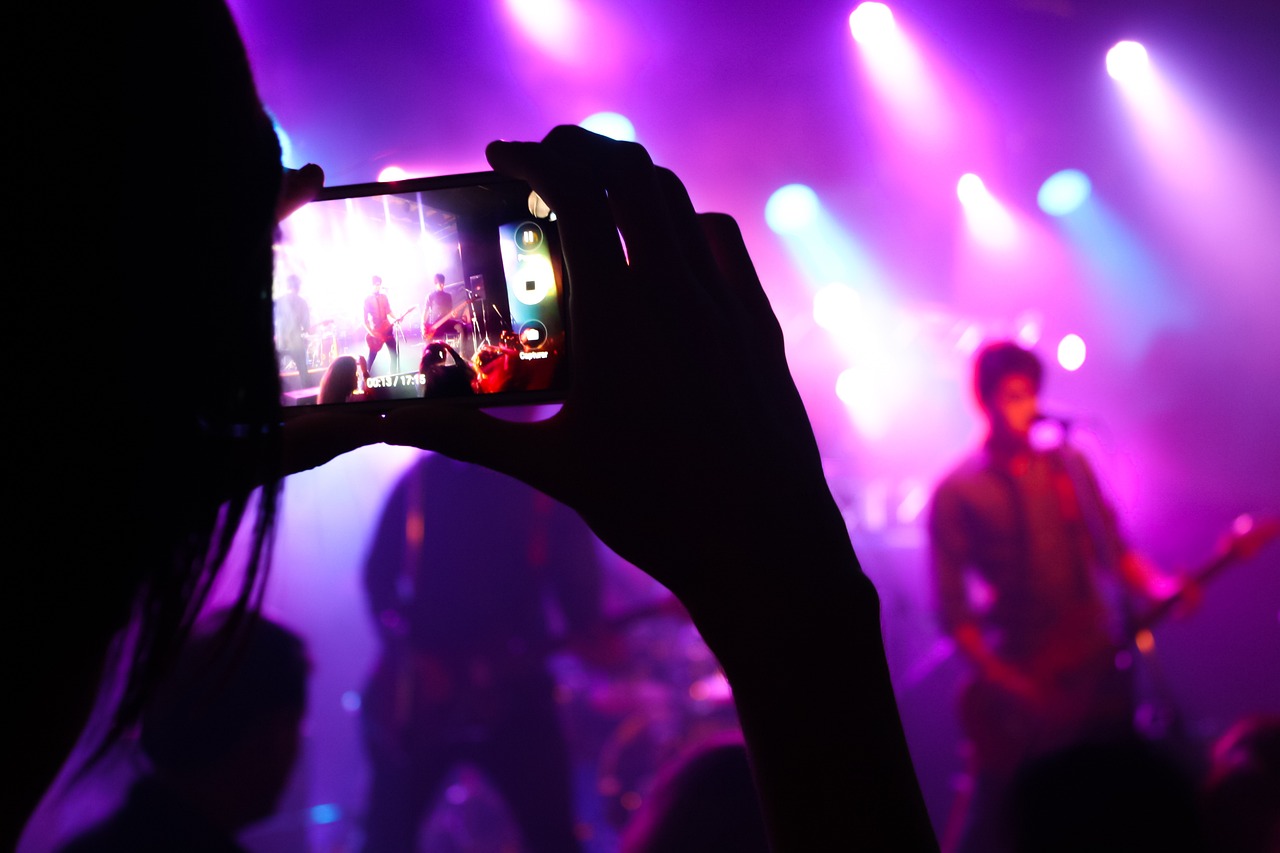By admin November 23, 2024

The entertainment industry has always been at the forefront of technological innovation, constantly pushing the boundaries of creativity and storytelling. Over the years, technological advancements have revolutionized how movies and music are created, experienced, and consumed. Technology has continually reshaped the entertainment landscape from the early days of special effects to the rise of computer-generated imagery (CGI) and, more recently, the transformative power of artificial intelligence (AI). Today, AI is set to change everything, from how films are made to how music is produced and consumed, ushering in a new era of creative possibilities.
CGI: Revolutionizing the Visual Landscape
The introduction of CGI in the 1990s marked a significant turning point in the film industry. Before CGI, visual effects were achieved through practical techniques like miniatures, stop-motion, and matte paintings, which were time-consuming and limited in scope. However, CGI allowed filmmakers to create stunning, hyper-realistic visuals previously impossible. Movies like Jurassic Park (1993) and Titanic (1997) demonstrated the potential of CGI, using computer-generated images to bring fantastical creatures and massive ships to life.
Since then, CGI has become an integral part of filmmaking, used in everything from action sequences to animated films. It has made possible the creation of imaginary worlds and characters that engage audiences in once unimaginable ways. CGI’s influence is evident in the blockbuster success of superhero franchises like the Marvel Cinematic Universe and Avatar, where digital effects are used to craft entire universes and breathtaking visual spectacles.
AI in Filmmaking: Enhancing Creativity and Efficiency
While CGI has allowed for movies’ visual transformation, artificial intelligence (AI) is poised to change the creative process itself. AI is increasingly used in various aspects of filmmaking, from scriptwriting to editing, casting, and even generating visual effects.
One of the most significant ways AI is influencing filmmaking is through scriptwriting. AI programs can analyze large volumes of existing scripts, understand narrative structures, and generate new scripts based on predetermined parameters. While AI-generated scripts are still in their early stages, these tools offer new possibilities for writers, helping them brainstorm ideas, structure plots, and create dialogue with unprecedented speed and accuracy.
AI is also revolutionizing the editing process. Traditionally, editing a film was labor-intensive, requiring hours of work to cut, arrange, and perfect scenes. However, AI-powered editing tools can now analyze footage and suggest edits based on visual patterns, pacing, and emotional impact, significantly reducing the time required to produce a finished film. These tools can also help with color correction, sound mixing, and even optimizing content for different platforms, further streamlining the production process.
Moreover, AI is being used to enhance visual effects in filmmaking. In conjunction with CGI, AI algorithms can generate realistic simulations of natural elements like fire, water, and smoke, making digital environments more lifelike. AI can also be used for deepfake technology, allowing filmmakers to create digital versions of actors or de-age them in post-production, pushing the boundaries of visual storytelling.
AI in Music: Creating New Sounds and Composing Music
The music industry is also feeling the influence of AI, which is transforming how music is composed, produced, and consumed. Artists and producers already use AI-powered tools to create new sounds, experiment with different genres, and even compose music from scratch.
One of the most significant applications of AI in music is composition. AI algorithms can analyze patterns in existing music and generate new compositions based on learned patterns and structures. Programs like AIVA (Artificial Intelligence Virtual Artist) have already composed orchestral music, while other AI tools assist artists in creating melodies, harmonies, and rhythms across genres. While AI-generated music is still in its infancy, its potential to inspire new creative processes is enormous, enabling musicians to experiment with novel musical ideas in ways that were once impossible.
AI is also transforming the music production process. AI-powered software can help with tasks like mixing and mastering, making these technical aspects more accessible to independent artists. For example, AI tools like Landr offer automated mastering services, allowing musicians to perfect their tracks without needing an expensive studio engineer. Additionally, AI is being used to create personalized music recommendations, which have become a central feature of music streaming platforms like Spotify and Apple Music. These recommendation engines analyze user preferences, listening habits, and trends to suggest music tailored to individual tastes.
The Future of Technology in Entertainment
AI’s influence on the entertainment industry will only deepen as it continues to evolve. The line between human creativity and artificial intelligence will blur, with machines working alongside humans to enhance and augment the artistic process. In filmmaking, we may see entirely AI-generated films, where computer algorithms design the plot, characters, and visuals with minimal input from human creators. AI could become an essential tool for artists in music, offering endless possibilities for new sounds, genres, and styles.
However, the increasing reliance on AI in entertainment also raises questions about creativity, authorship, and the role of human artistry. While AI can help streamline processes and offer new creative tools, it’s crucial to maintain the human touch that imbues art with emotion, meaning, and connection.
Conclusion
From CGI to AI, technology has continuously reshaped the entertainment landscape, allowing filmmakers and musicians to push the limits of what’s possible. CGI brought incredible visuals to life, while AI is now changing how stories are told and music is made. As these technologies continue to evolve, the future of entertainment promises to be more innovative, immersive, and creative than ever before, offering audiences an entirely new way to experience art.